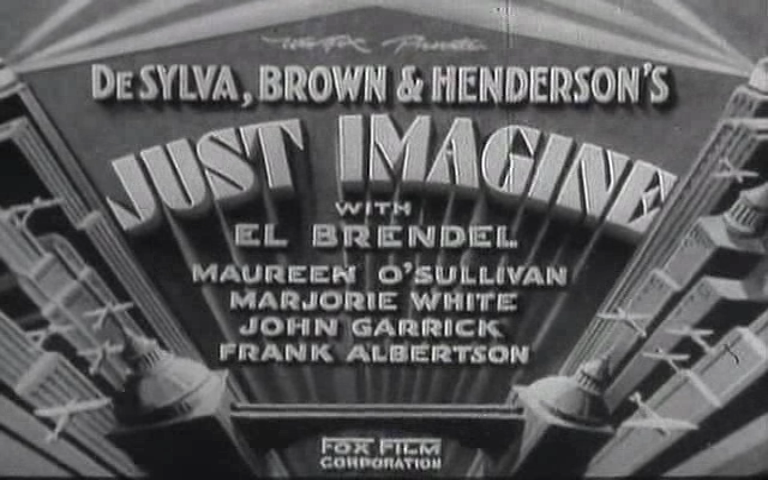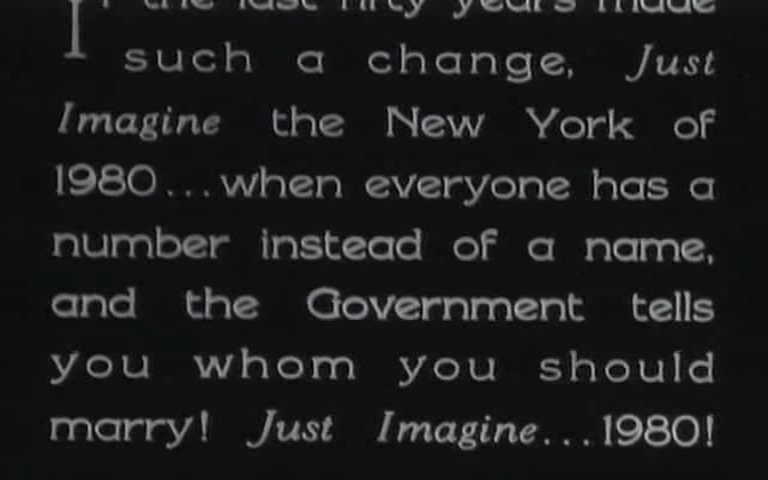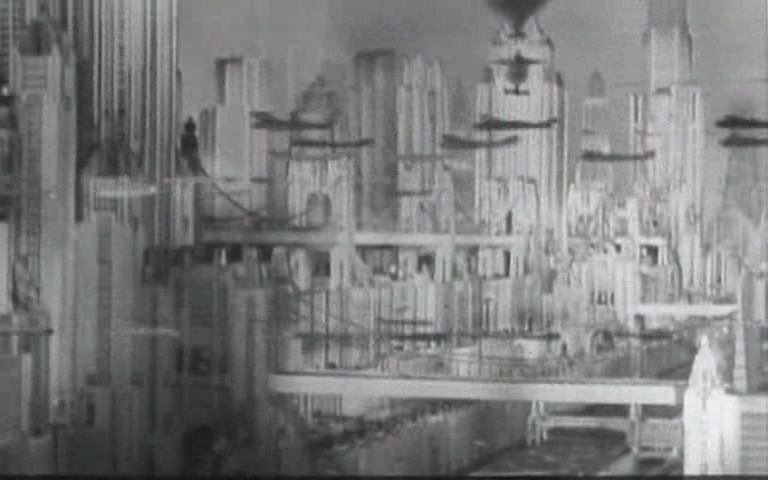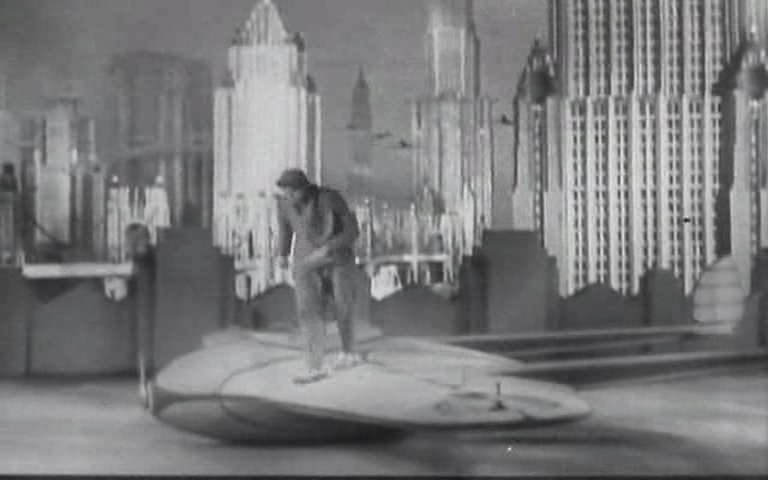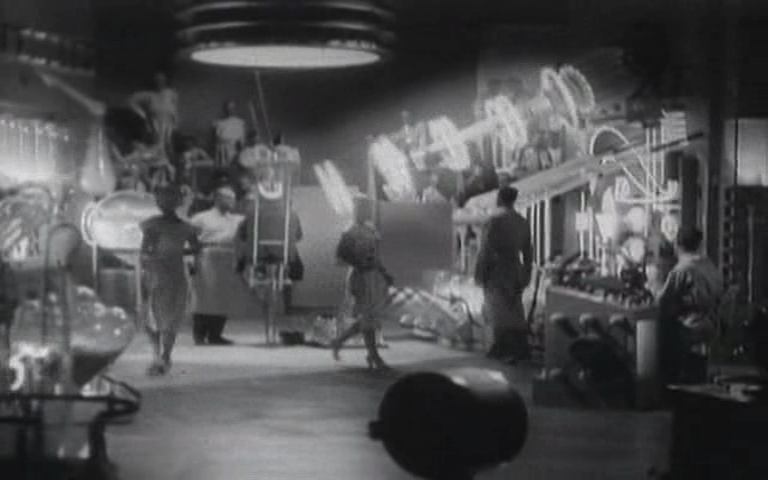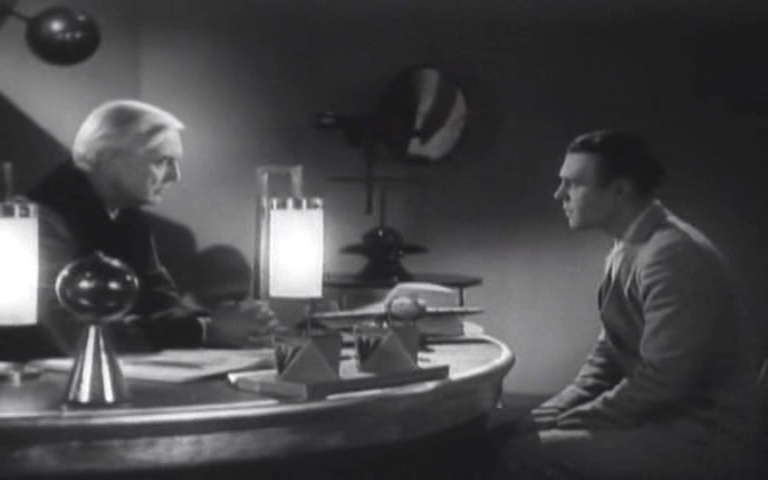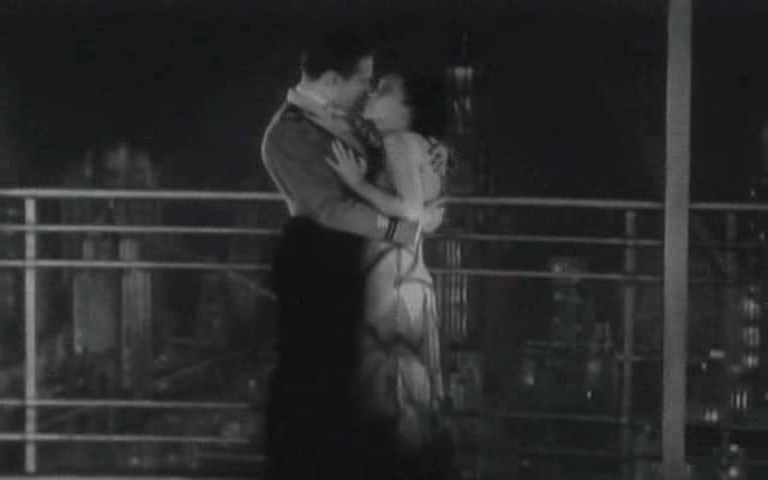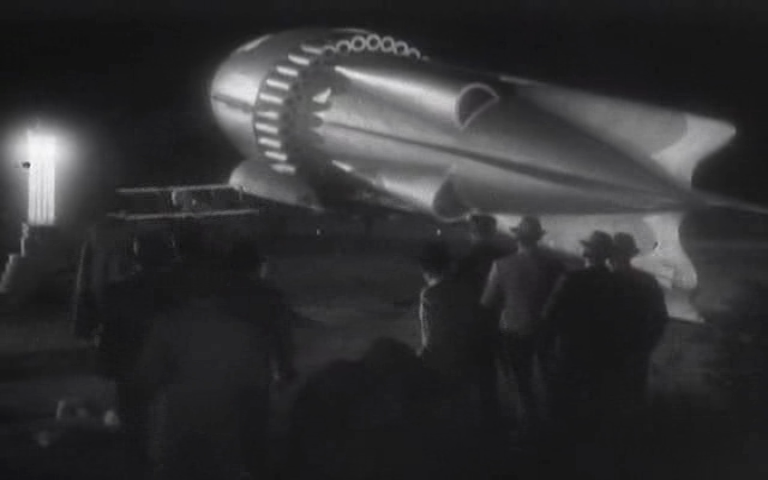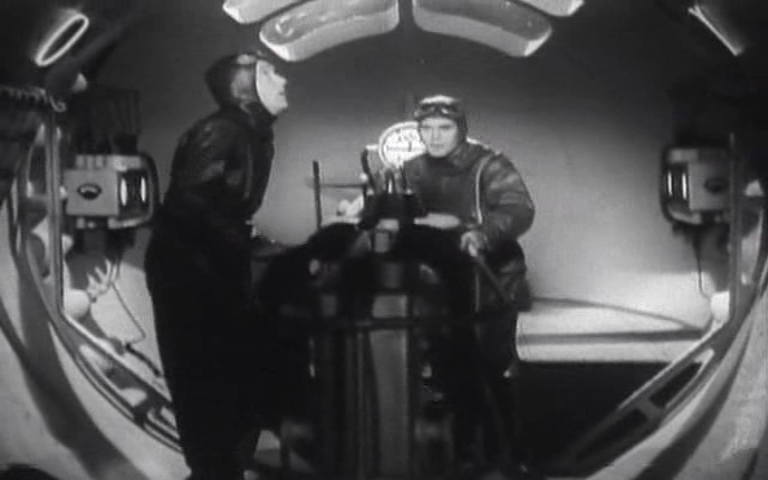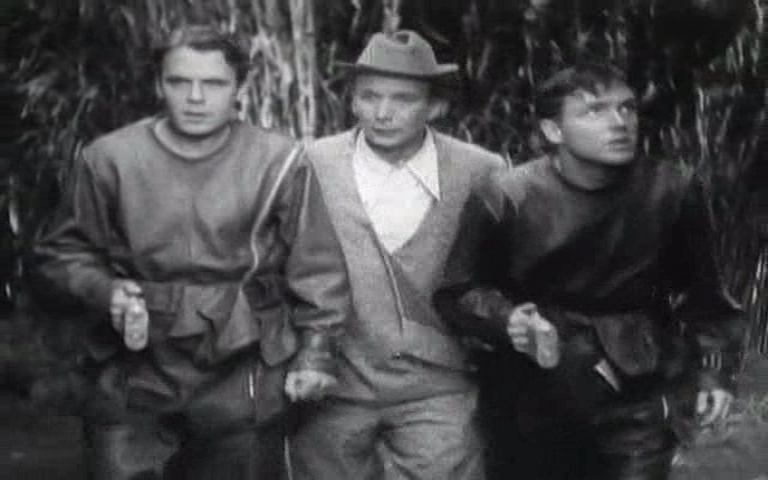-
#13 – Just Imagine! (1930)
Just imagine! (1930)
Film review #13
Director: David Butler
A science-fiction romantic comedy musical…Wait what?
In the year 1980 (fifty years in the future when this film was made), the world is a different place: People ride in planes around the cities, and can travel around the world in minutes. People also have government issued numbers instead of names, and the government decides who you can marry based on your success, which the basis for this movie.
J-21 is a pilot who wishes to marry LN-18, but MT-3 has also filed a request to marry her. A court rules that by law MT-3 gets to marry her, since he is the most successful man (Though it’s said he just published a paper his Father wrote before he died). LN-18 is unhappy with this arrangement, since she loves J-21 and she only accepted MT-3’s request for marriage on the behest of her Father. He is told he has an appeal in four months in which he will have a chance to win LN-18’s hand in marriage.
J-21’s roommate RT-42 is going with his girl D-6 to see an experiment where scientists are attempting to revive a man struck by lightning in 1930. J-21 tags along to the experiment, which is a success. The man, now revived, has nowhere to go, so J-21 invites him to stay with them. He picks himself a number: O-0, and so he is referred to as “Single O” from now on.
Single O is introduced to a world where babies are bought, and food and drink comes in pills. J-21 sneaks into LN-18′s apartment, but Single O’s drunken antics get him caught by MT-3 and he is thrown out. While walking round the city streets alone in sorrow, he is greeted by a man that offers him an opportunity. He takes J-21 to see the great inventor Z-4, who says he needs a pilot for his “space plane” to be the first person to go to Mars. J-21 is reluctant, but after Z-4 reminds him that this accomplishment would allow him to win his appeal in marriage to LN-18, he agrees to do it.
J-21 and RT-42 set off for Mars, and when they have launched, they find Single O has stowed away because he has nowhere else to go. The three of them arrive on Mars, and set about exploring. They stumble upon a Human-like tribe who communicate primarily through gesture. When the three heroes are captured by another tribe, they realise that everyone on Mars in born with a twin: One is good, and one is bad. They launch a daring escape and hurry to their ship before they miss their launch window. Back on Earth, J-21s appeal is starting, and he has not returned. D-6 tries to stall for time, while the three heroes arrive. He says he has been to Mars, and the judge requires proof, which Single O provides in the form of a captured evil twin from Mars. The judge rues in J-21s favour, and he and LN-18 are reunited and allowed to marry. Also, Single O is happily reunited with his son Axel, now an old man.
Now, when this film was released in 1930, the great depression was in full effect, and this film was intended as a pick-me-up for the public, hence the comedy musical elements. It provides an interesting perspective on the “future” of 1980, in which the speed of life develops even further, and becomes more automatised and regimented. Despite the clear control of the government in people’s lives, there is still an overall sense of optimism in the futuristic New York City. As I mentioned earlier, this is probably due to the film being a pick-me-up during the Great Depression, and I suppose this movie wanted to show that life would get better. The movie of course didn’t quite predict 1980 correctly, we don’t all have planes and roads in the sky, or buy babies from the government. But it is an imaginative view of 1980 regardless.
The production and effects in Just imagine are quite impressive for their time. It was one of the first films to use large-scale rear-screen-projection. All the skyline shots of New York City are done this way, and it very well done. The beginning sequence in the sky as well is put together nicely. Bits of technology such as the view-screen phones are imaginatively presented. It’s all the little bits of technology that really hold the believability of the film intact. With all of this, the film was very expensive in its time to make, and achieved reasonable success at the box office. It’s a shame it isn’t well known because it seems to be a very landmark film in terms of its production (Maybe the fact it has never had a VHS or DVD release is part of that problem?). In the 1930s, where there was perhaps little appetite for science-fiction, integrating it with the comedy and musical genres was a smart idea to garner wider appeal.
Of course, when the film came out, humanity was nowhere near getting to Mars or even launching anyone into space, so I imagine there was very little to go on when they were designing the Mars set. Looking at it in retrospect, we can safely say that the Mars in Just imagine with it’s vast jungles and human population is nothing like the actual planet Mars with it’s barren red landscape and no trace of life to be found.
As is par with the science-fiction genre, addressing social issues such as feminism crops up throughout the film. While it seems that men still hold the most powerful positions (The judge, inventor and the various extras are all men), there are women, such as the census taker at the start of the film, that have full careers, which would probably have been quite controversial for its time.
So overall I found Just imagine to be a really fun watch, it gives us an interesting look at the issues surrounding the 1930s, and just what society at that time was like and what they saw in the future. The blending of so many genres might seem strange, but it has a lot of charm, and incorporates them all very well. It is a shame this film isn’t well known or recognised, because in terms of its ambition and production, it seems to be an important example of western film development, and I would highly recommend a watch.
